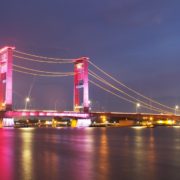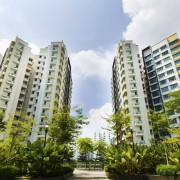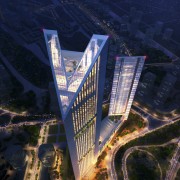Faithful+Gould Share How Hong Kong is Once Again Attracting Commercial Property Investors
A view of the Hong Kong city scape.
Hong Kong’s real estate development opportunities can be challenging. New opportunities are opening up in Kowloon, but how do you ensure your building is fit for purpose?
Following a somewhat stagnant commercial property market in 2015, Hong Kong is now attracting investors once again. Change of use is a key driver, with many properties being purchased or leased with a view to converting to hotels or offices. The hospitality market remains healthy, creating ongoing demand for hotels.
Grade A office space, in the central business district of Hong Kong Island, tends to have long leases and rarely changes hands. Today’s available property is frequently snapped up by mainland financial institutions looking to build a bigger footprint in the city due to Beijing’s ‘going out’ strategy. According to Colliers International, the 11 state-owned banking giants each occupy at least 100,000 square feet in Central.
Away from land-hungry Central, however, ongoing redevelopment across the harbour is presenting interesting real estate opportunities. Kowloon’s lower rents are attracting prospective tenants, many of whom are keen to downsize and relocate to escape high Central rents. Kowloon East is becoming a popular location for the city’s insurance and shipping sectors, with overseas investment banks also showing interest.
Back office functions, especially, are straightforward to accommodate here. Media and creative companies are also favouring the district, with its mix of traditional and warehouse/loft spaces.
In Kowloon East, government land supply has the potential to release another 13.6 million square feet of commercial floor space onto the market. Much of this will be at Kai Tak, where occupants will also benefit from the new rail infrastructure linking into Central.
The first challenge for prospective investors outside of Central is to accept the location. A company’s staff will typically prefer the prestige of Central, with its good transport links. However, the corporate cost benefits are significant, so selling the idea to staff may be a necessary part of the plan.
Financial companies will need specific infrastructure, which is sometimes seen as a stumbling block, though in reality, this is relatively easily organised. Change-of-use compliances are complex, with inward investors typically unfamiliar with Hong Kong’s complicated system. The main pitfall is ending up with an unsuitable building, not fit for purpose.
For many clients, Faithful+Gould is with them from project inception to completion and relocation/occupation, offering a full turnkey package. Faithful+Gould performs due diligence, checking the technical suitability and fitness of purpose of the building. We provide a full detailed report including costs and expert analysis. Visit Faithful+Gould for more information.










